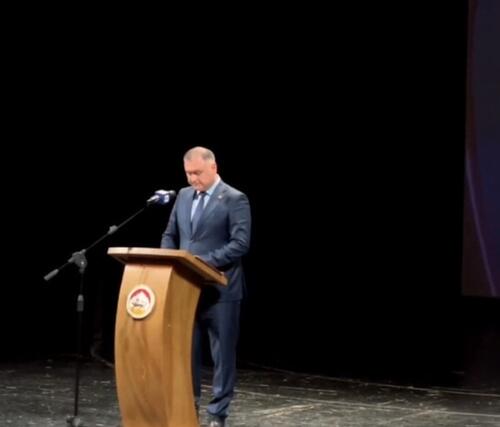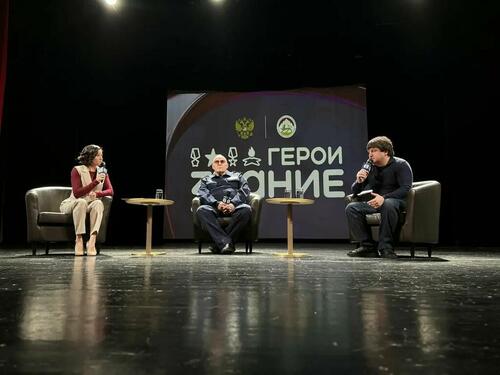The tragic events of 1920 were not just a military conflict, but a deliberate destruction of people, their identity and right to self-determination.
This was stated by President of South Ossetia Alan Gagloev during the memorial event in honor of the 105th anniversary of the genocide.
He has noted that today the Ossetian people are remembering one of the most tragic pages of their history - the genocide committed by Georgia in 1920.
In his speech, the head of state has emphasized that the summer months of 1920 were marked by brutal murders, evictions and destruction of the Ossetian villages.
"Tens of thousands of Ossetians were brutally killed, evicted or forced to flee their native lands. The cultural and historical heritage was destroyed, and the population was reduced by a third," he said.
According to Gagloev, the events of 1920 cannot be viewed as the isolated cases of violence.
"Georgia carried out a deliberate policy aimed at depriving the people of their ethnic identity, territorial presence and the right to self-determination," the President continued.
He pointed out all the signs of genocide: mass murders, deportations, destruction of cultural heritage, intimidation and terror.
"The genocide of the Ossetians was prepared and carried out on the direct orders and under the leadership of the Georgian government," the head of state said.
Gagloev also recalled the systematic plundering of South Ossetia and the deportation of survivors to desert lands. He has emphasized that the actions of Georgian troops took place with the full support of the Georgian society.
"Having survived the terrible catastrophe of genocide, the people preserved their national unity, solidarity, the desire to return to their ancestral lands," he said.
The President condemned the hushing up of the facts of the genocide and the impunity of the organizers, which, according to him, led to the resumption of the policy of suppression of the Ossetians in the following years.
"Twice - in 1989-1992 and in 2008, the extermination of the people of South Ossetia was stopped only thanks to the decisive intervention and actions of the Russian Federation. The Georgian authorities, cynically denying Georgia's guilt for the genocide of the Ossetians, insult the memory of the victims and the feelings of the living, counting on the fact that today in the world few people know about the crime against humanity committed by Georgia in 1920. Georgia has been trying in every way for a long time to prevent the spread of the truth about the Ossetian genocide and documentary evidence, trying to erase the history of its crimes, but it is impossible to destroy the living memory of the people," Gagloev has emphasized.
He has noted that despite the fact that more than a century has passed, the pain of these losses still lives in hearts.
"What happened then was not random violence or a side effect of war. It was a deliberate policy of extermination of an entire people - genocide. Our common task as a single nation is to prevent these events from being forgotten. The memory of the victims of genocide is not only a tribute to those who have passed away, but also the important lesson for future generations. Only through memory can we preserve our identity, our culture, our statehood," he added.
At the end of his speech, Gagloev has noted that the people of South Ossetia have gone through many tragic trials in less than a hundred years, suffered terrible losses, but were able to withstand, preserve their national dignity, and recreate their statehood.
"Thanks to the Russian Federation, today South Ossetia is looking to the future with firm confidence to work for its beautiful country, for future generations, for the triumph of life on the Ossetian soil," he said.







